The results of research are like keys that unlock the doors that reveal the answers to the challenges facing medical science. At the Kinderwunsch Institut, medical treatments and research go hand in hand the one cannot be successful without the other.
We have been conducting research and development here since the initial establishment of the Kinderwunsch Institut. Following the formation of our research association FRED (Fertility, Research, Education, Development) in 2015, all our work in this area has been consolidated under one roof, making the Kinderwunsch Institut into an internationally recognised research centre.
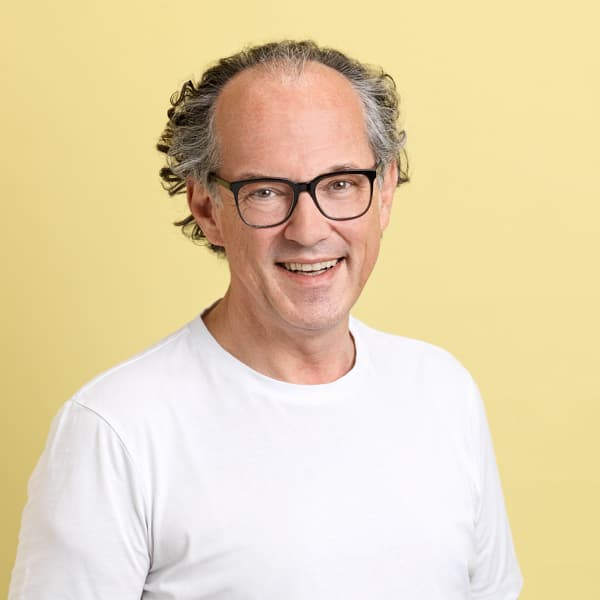
“When it comes to reproductive medicine, practice cannot manage without theory nor can theory manage without practice.”
Dr. Michael Schenk
By undertaking studies, we can add to the information generally available in the current research landscape.
For patients, the benefits are that we are aware of and can use the very latest treatment techniques developed on the basis of research results. This means we can provide our patients with the very highest level of comprehensive care. And if you decide to participate in one of our studies, you'll not only receive the support offered during the research project but you'll be contributing to the development of even better treatment options at the Kinderwunsch Institut.
All research and development activities at the Kinderwunsch Institut are subject to the stringent guidelines of the local ethics committee and defined in the Good Scientific Practice document.
Each study is first reviewed by the ethics committee of the Medical University of Graz and may only be initiated after their approval has been obtained. This guarantees that study designs are of high quality and are undertaken professionally and that compliance with all legal and ethical principles is assured.
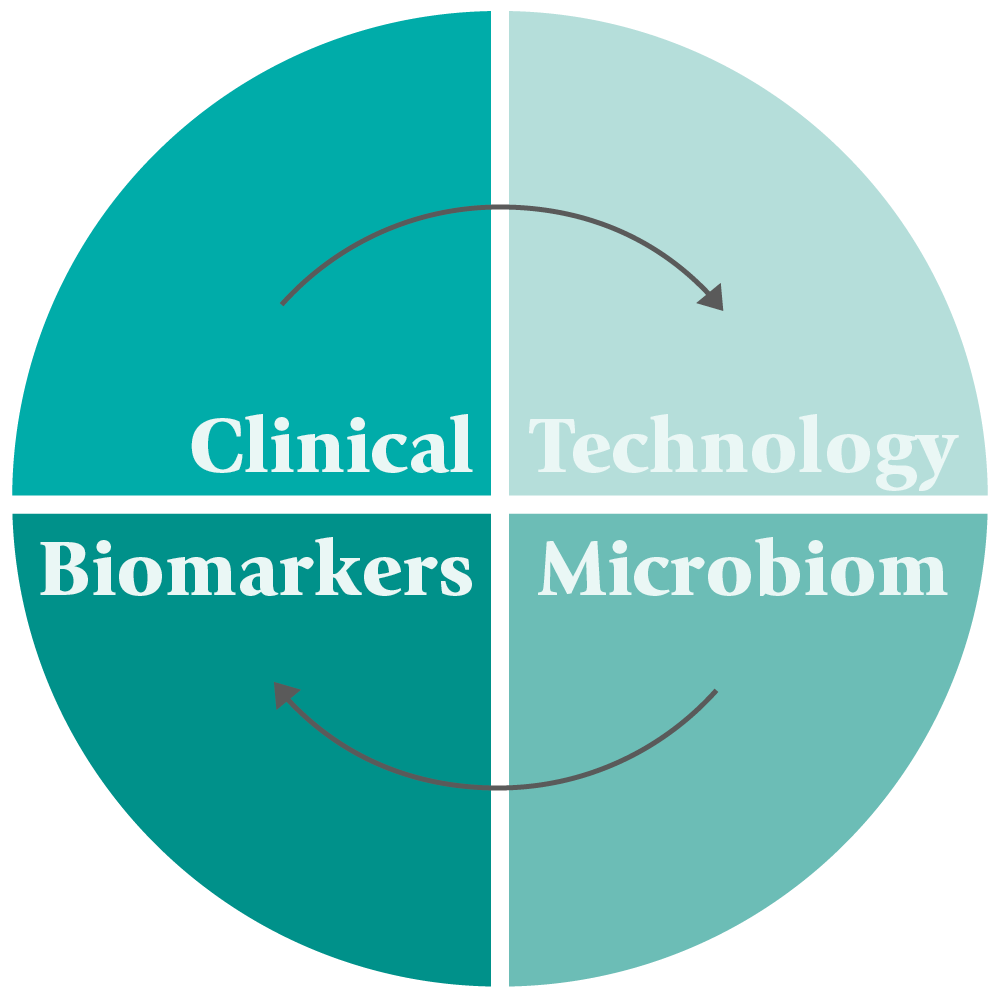
Here the main focus is on researching medications that can be used in fertility treatments. In addition to agents designed to promote stimulation and various treatment regimens, also studied are the development profiles of embryos and effects on the outcome of treatment.
The emphasis here is on researching new technologies, particularly those that can be used in our IVF lab. We also develop innovative techniques that can be used in fertility treatments.
Biomarkers are indicators that provide information about biological and pathological processes. These include physiological characteristics, such as blood test factors. Such markers can be used for diagnostic purposes; in other words, they can help physicians better adapt a course of treatment or understand pathological processes.
Bacteria are everywhere. Although this is a world that we cannot observe with the naked eye, it has significant effects on our lives. This innovation sector looks at this subject in detail and works on finding correlations between microbiom flora and fertility treatments.
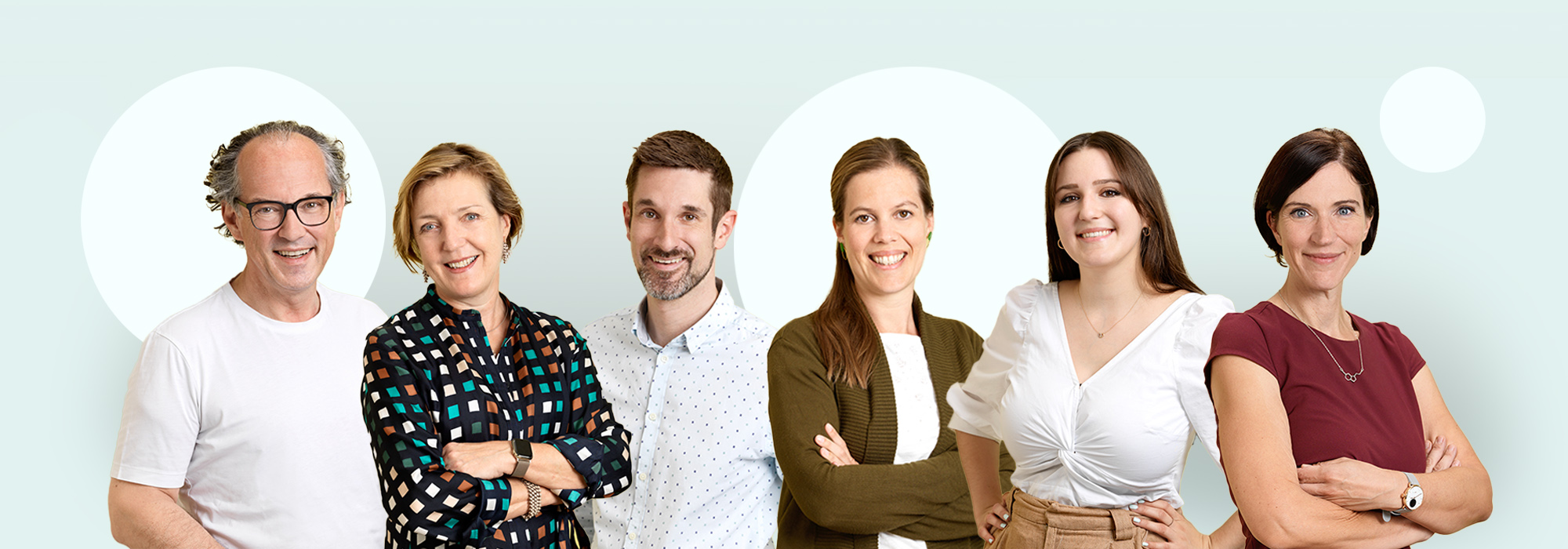
Research doesn't stop within our four walls - we also go out to attend conferences and visit specialist trade fairs. This year, we were present at the ESHRE (European Society of Human Reproduction and Embryology) conference in Kopenhagen, where we learned about some interesting new developments in the field of reproductive medicine.
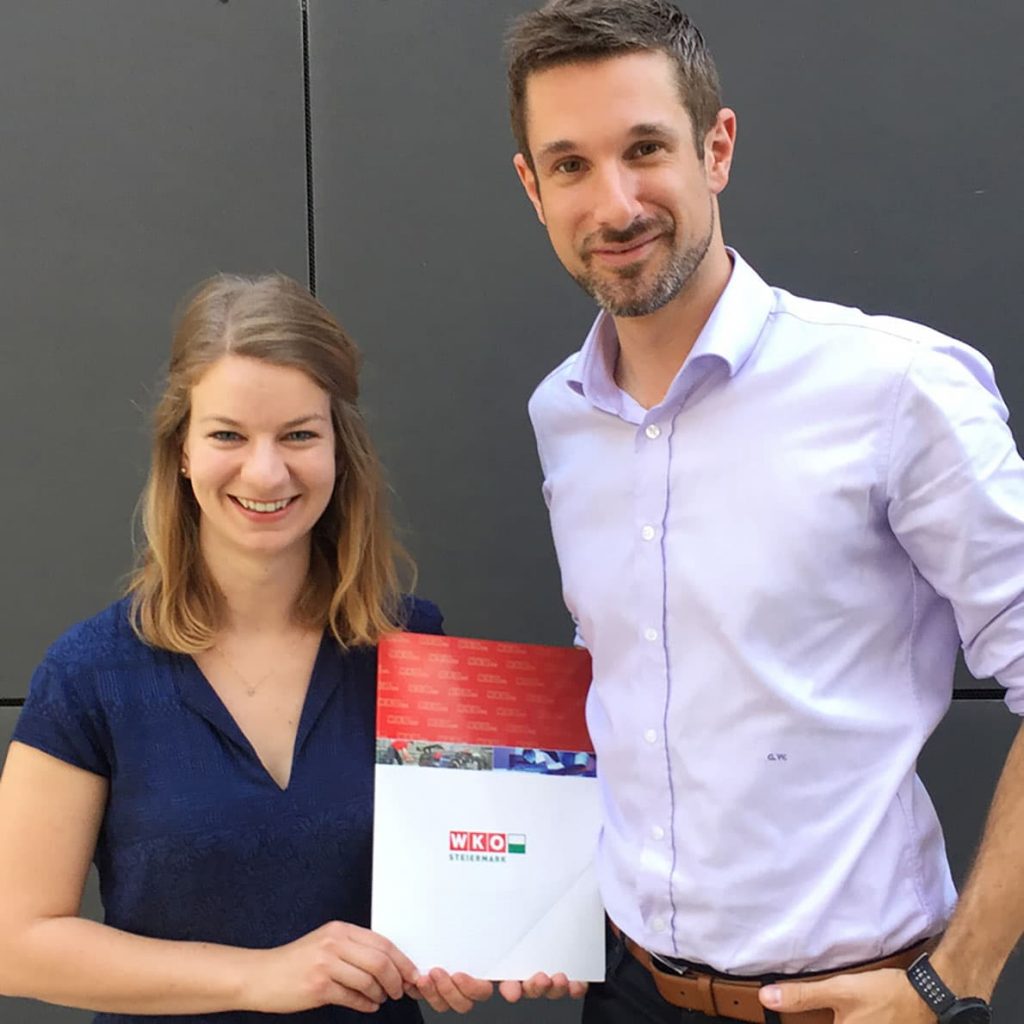
We consider it particularly important to provide what support we can to the work of young Master's and Diploma degree students. We were particularly pleased to learn that Elisabeth Feldmeier has been awarded a WKO research scholarship for her diploma dissertation “Anti-Müller-Hormon in der Follikelflüssigkeit und der Zusammenhang mit dem Follikelvolumen - Eine retrospektive Datenanalyse” (Anti-Müllerian hormone in the follicular fluid and the correlation with follicular
volume - a retrospective data analysis). We would like to congratulate her on this remarkable achievement!
Among the most important aspects of my work are research and the continuing development of our medical options. It is now possible, thanks to cooperation with the Biobank Graz, to obtain important insights into data and new discoveries relating to fertility treatment. Our membership of the Translational Science Forum of BBMRI.at, the Austria biobank network, means for me major progress with regard to my research activities and also shows that our research team here is now acknowledged throughout Europe.
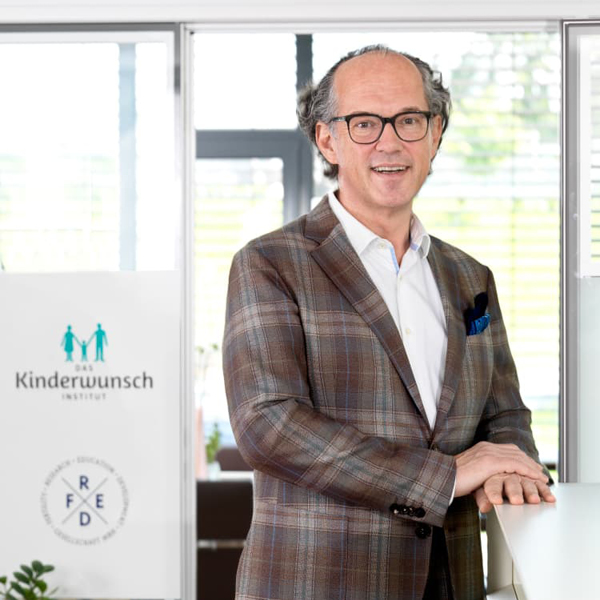
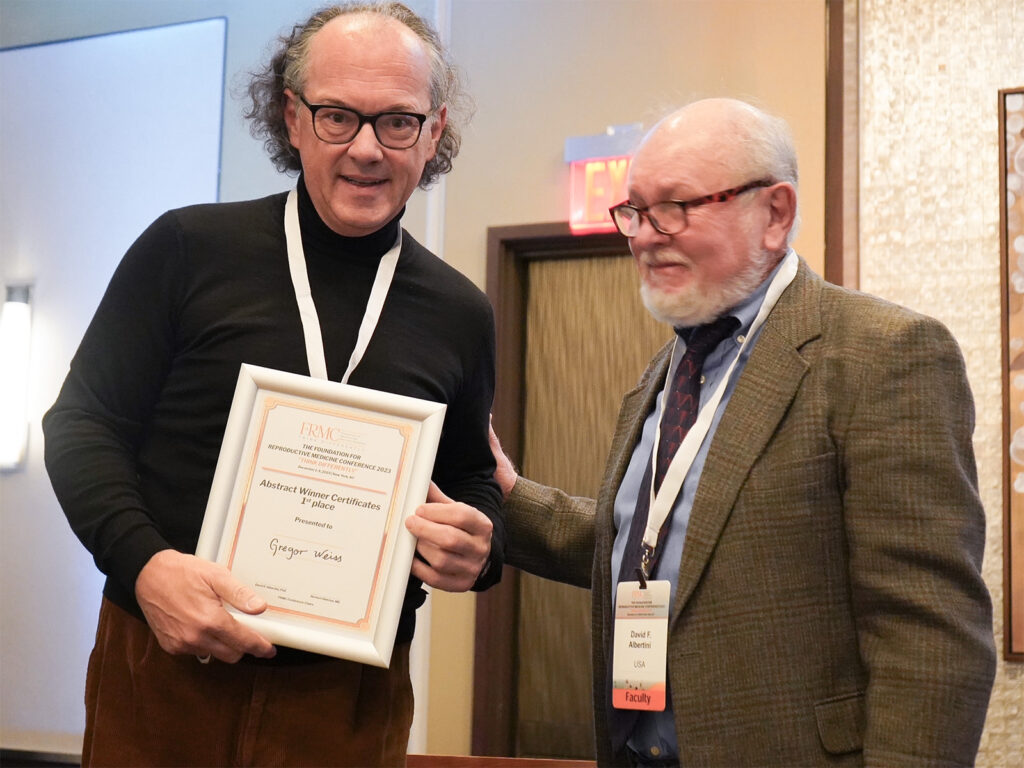
At the “Foundation for Reproductive Medicine” conference in New York in 2023, the scientific team was awarded the best abstract of the conference with the paper “Low lactate levels in embryo culture media favor embryo utilization and pregnancy rates”.
One of the major responsibilities in the R&D sector is the publication of the results of own research in articles in specialist medical journals, which by these means reach a wide audience. In this way, we can contribute to the international research in the field of reproductive medicine and offer the latest techniques and innovations to our patients to help them on their way to that desired child.